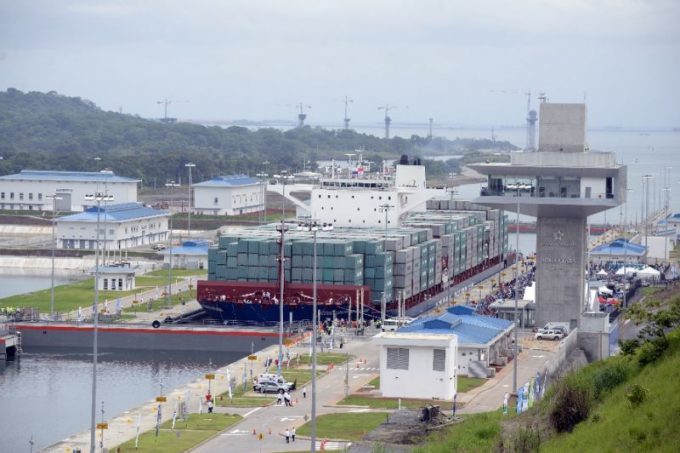Schenker, what Schenker? DSV boss talks up options – yes, Sir!
New corporate structure also serves ‘potential M&A that may come up’. May? Potential?

COSCO Shipping Holdings has no place to hide now the takeover of Orient Overseas International Lines (OOIL) and its container line arm, OOCL, has gone through.
Financially, the tie-up justifies its existence as a multi-billion US dollar business with a market cap of Rmb43.5bn ($6.5bn) in Shanghai, but it is worth considering that COSCO would likely be worth just a fraction of that had its OOIL cash deal – which valued the target’s equity at $6.3bn – not happened.
But what’s next?
As ...
Etail by air – here to stay or on a short shelf life?
HMM sees opportunities in Hapag-Lloyd’s exit from THE Alliance
The rise and rise of China's ecommerce platforms
Increasing scrutiny could stall rise of ecommerce platforms, as TikTok faces US ban
Legal battle heats up over 'unseaworthy' and 'reckless' MV Dali
DSV chief reticent on Schenker: the focus on growing market share
Another strong month for US ports as container flows continue to rise
MSC redeploys 'Israel-linked' box ships away from Persian Gulf
Alex Lennane
email: [email protected]
mobile: +44 7879 334 389
During August 2023, please contact
Alex Whiteman
email: [email protected]
Alessandro Pasetti
email: [email protected]
mobile: +44 7402 255 512

Comment on this article
Gary Ferrulli
July 13, 2018 at 2:20 pmVery good financial analysis for a business – but is COSCO a business? or an arm of China Inc., there to support whatever political goals the Chinese government has relating to global influence. When China Shipping and COSCO merged, any real business would have taken full advantage of synergies of two global entities with offices in well over 60 countries. They did that in all but one country, China, where more than 20,000 employees all retained their positions. And how many real businesses get a $26. Billion infusion of cash from their government in a 5 year span as Cosco is getting between 2016 and 2020, with a promise of more on the way? Now, there is nothing wrong with China deciding to do whatever they want to do with Cosco, it is a state owned entity. But don’t try to make real comparisons between them and other true businesses.
Ale Pasetti
July 16, 2018 at 10:11 amHi GFERRULLI,
Thanks for your comment.
Re: “But don’t try to make real comparisons between them and other true businesses.”
You are right, if that applies to an ideal world where companies have to trust only their own funding sources to beat competitors and the state doesn’t exist. But you are clearly wrong here.
I agree moral hazard is a problem (for its rivals), However, regardless of its shareholding structure, this is one of the top five container shipping companies in the world, so I think we agree it’s a “true business”.
Yang Ming is not a “true business” either? And what if/when state intervention might ever be needed for weaker/smaller players HMM/Evergreen/others? They should then not be considered “true businesses”, whatever that really means?
Take some shippers in the auto industry: Renault, which received state backing at critical times, is not a true business? And GM? And Chrysler? Fiat?
Of course, we can argue that COSCO has a competitive advantage, but that’s the same in many other industries (think of utilities, for example).
We acknowledged state ownership in this post as well as in my/our previous coverage of COSCO here on The Loadstar.
Best,
AP